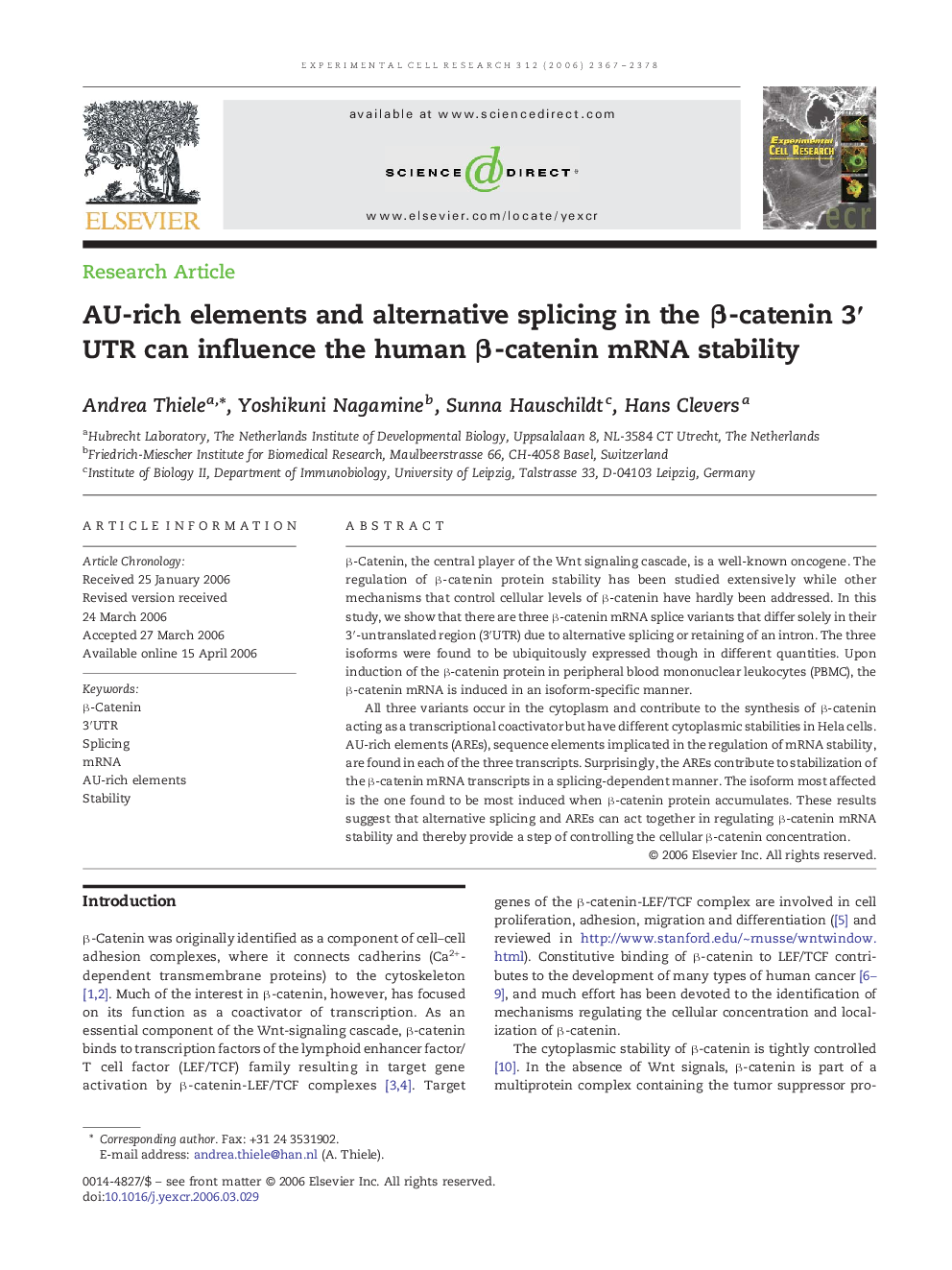| Article ID | Journal | Published Year | Pages | File Type |
|---|---|---|---|---|
| 2132984 | Experimental Cell Research | 2006 | 12 Pages |
β-Catenin, the central player of the Wnt signaling cascade, is a well-known oncogene. The regulation of β-catenin protein stability has been studied extensively while other mechanisms that control cellular levels of β-catenin have hardly been addressed. In this study, we show that there are three β-catenin mRNA splice variants that differ solely in their 3′-untranslated region (3′UTR) due to alternative splicing or retaining of an intron. The three isoforms were found to be ubiquitously expressed though in different quantities. Upon induction of the β-catenin protein in peripheral blood mononuclear leukocytes (PBMC), the β-catenin mRNA is induced in an isoform-specific manner.All three variants occur in the cytoplasm and contribute to the synthesis of β-catenin acting as a transcriptional coactivator but have different cytoplasmic stabilities in Hela cells. AU-rich elements (AREs), sequence elements implicated in the regulation of mRNA stability, are found in each of the three transcripts. Surprisingly, the AREs contribute to stabilization of the β-catenin mRNA transcripts in a splicing-dependent manner. The isoform most affected is the one found to be most induced when β-catenin protein accumulates. These results suggest that alternative splicing and AREs can act together in regulating β-catenin mRNA stability and thereby provide a step of controlling the cellular β-catenin concentration.
